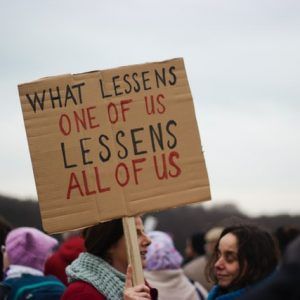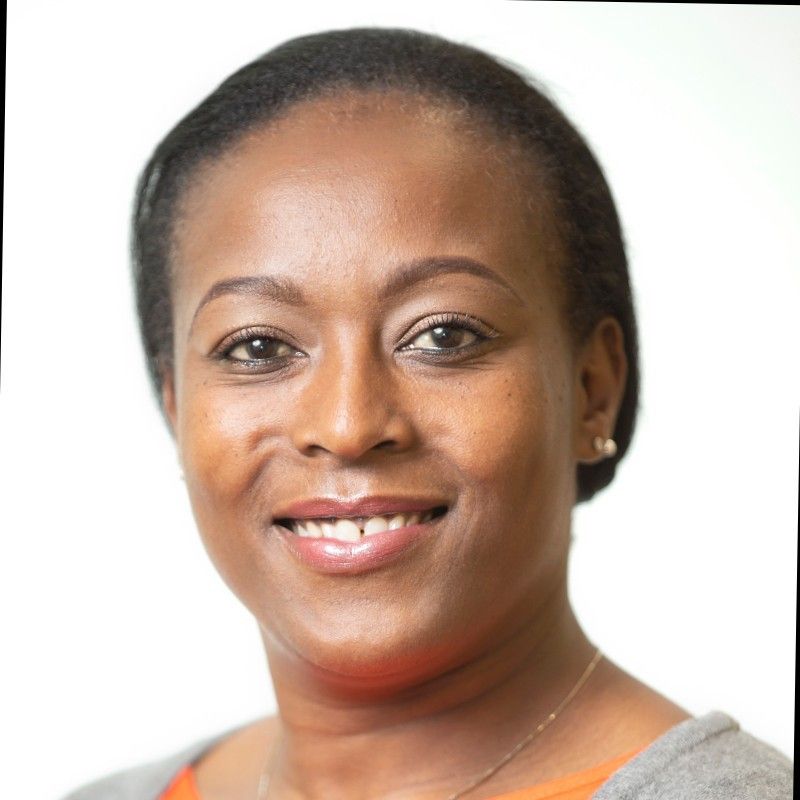There’s a Beyoncé song titled If I Were A Boy which flips the switch giving the perspective of a relationship with the woman acting like a man does in a relationship. I anticipate that this is how women imagine men act in relationships. I’m doubtful that men ever imagine how women experience a relationship. But that’s a story for another day. However, it does talk to our ability to have empathy and to understand a situation or a life from another person’s perspective; now that is important for our sense of humanity as individuals, as men and women, as a community, as a country.
We are back in lockdown, with a new variant of C-19 rocking our country and our lives. It is like we hit the rewind button and went back to April 2020, but this time – this year (2021), hopefully, a little wiser from the lessons we have come to learn.
In early 2020, The Policy and Strategy Unit in the Office of the President (PASU) conducted a study in partnership with Mastercard Foundation, and Dalberg Advisors on Gender in Employment and Labour Market in Kenya: Analysis of the Barriers and Opportunities for Young Women and Men to understand the gender gap in employment and entrepreneurship for youth, and how it can be closed. After reading the report, it got me thinking about our economy, COVID, and girls and women.
Equality refers to all human beings having the same worth and importance as one another. Its definition is aptly presented in the Universal Declaration of Human Rights Article 1: All human beings are born free and equal in dignity and rights. They are endowed with reason and conscience and should act towards one another in a spirit of brotherhood.
Equity, on the other hand, refers to equality of outcomes because equal access or equal resources does not necessarily amount to equal outcomes.

Image from: interactioninstitute.org
Girls, women, COVID-19 and the economy in Kenya
March has ended, with a lot said about girls, women and gender balance. Truth is, it is a never-ending matter because it is fundamentally and directly tied to our social fabric; our social and economic challenges and opportunities; and the future of our nation and us as a people.
Let me share with you some key findings from the PASU report and other sources, that present the economy and importantly, COVID-19 from a Kenyan girl or woman’s perspective. I have tried to also give a suggestion with each finding on what you could do about it, hopefully presenting the issue, but also a possible simple action you can do to address the issue:
- Young men and women are almost equally represented in the labour force i.e. all people in the working population who are either employed or unemployed. However, young women are twice as likely to be unemployed and 39% underemployed (working but less than 28 hours a week). Of the youth (men and women) who are employed, young women earn 45% less than young men.
What could you do about it? Advocate, stand up for fairer pay, and if you are an employer pay fairly. Globally, women and girls spend 90% of their income on the household, while men spend 30-40% (UNAC, 2012). Perhaps this is the reason we always preferred to tell our mothers what we needed for school, and we never quite knew (or asked) how she managed to get the money for it.
- Across the country, through concerted efforts, boys and girls receive nearly equal participation in primary and secondary education, however, only 10% of women enter tertiary education and only 37% of that 10% graduate or complete their tertiary education. This is mainly due to teenage pregnancy, motherhood, domestic chores expected, and in some cases early marriage.
What could you do about it? Talk to and encourage girls and young women; and their parents on the importance of education – to their livelihoods, future families, and country. If you can, support and sponsor young women for tertiary education (colleges, technical and vocational training, professional courses, university).
- Women form the majority of the workforce in wholesale, retail and hospitality in low-wage positions. And 63% of young women work in the informal economy. With C-19 and an economic downturn, women are at higher risk of being laid-off and are less likely to be re-hired.
What could you do about it? Encourage girls to study in TVET (technical and vocational training) for skills relevant to our developing country, and nurture their interest in STEM (science, technology, engineering and mathematics). Few girls and women pursue studies in these areas, yet employers report significant shortages in these skills. If you are an employer, (re)hire, check yourself for unconscious bias.
- With women being primarily responsible for care work in households, their share of work at home averages 11.1 hours, compared to men 2.9 hours. With closures of learning institutions and over-capacity healthcare facilities, women would need to invest even more time in their homes during COVID.
What could you do about it? Offer a helping hand at home. Encourage your brothers, nephews, to help out your mothers, aunts, sisters, nieces. In your family, advocate for your female relatives to have enough time to focus on school, or job opportunities. At the end of the day, whatever income she makes, benefits the home most significantly.
- In Kenya, 75% of nursing staff are women, putting them at the frontline of the pandemic – fighting it, and getting it.
What could you do about it? When you can, appreciate their support and their fight at the frontline be it for the pandemic, or even as the person taking care of you when you are sick in a hospital, clinic. We often appreciate the doctors more, than the nurses who pay attention to the details that help us get healthier and better.
- Before COVID-19, 1 in 3 Kenyan females has experienced an episode of sexual violence before 18 years of age (Kenya VAC, 2010). Put another way, think of three women you know (mother, aunts, sisters, nieces, friends) of those three women, at least one have been sexually attacked before adulthood. In 2020, in less than one month of the lockdown, the National Council on the Administration of Justice reported a significant spike in sexual offences. With 36% of criminal cases reported being sexual offences in a two-week period.
What could you do about it? Evil prevails when good men do nothing. In your sphere of influence stand against gender violence, that is someone’s sister, daughter, niece too. Majority of gender-based violence in Kenya is against girls and women. However, violence is now also being noted for boys and men.
- We cannot forget the alarming rise in teenage pregnancies in 2020 reported by the media, or CS Matiangi’s orders in March 2021, to arrest the adults responsible for over 10,000 teenage pregnancies in Trans Nzoia County (Nation, 2021). Most perpetrators are reported to be relatives, neighbours, an individual known to the family. Worldwide, pregnancy and childbirth are the leading causes of death for girls aged between 15 and 19 according to the World Health Organization.
What could you do about it? Have honest conversations with boys and young men about respect, responsibility, sex and consequences – it’s too simplistic, careless to focus on the females only, with the law and justice now in Kenya, both parties should bear the consequences. And talk to girls and young women too. Despite the awkwardness of the topic, and our moral aspiration to advocate for abstinence – our population continues to grow exponentially year on year. If young people aren’t being told the truth about sex, pregnancy, responsibility and consequences, they will get the information from somewhere else, and that source probably won’t be the advice that is really needed.
You can’t win with half a team
As former US President Barrack Obama highlighted in his 2015 Kenya visit speech, if you have a team, and you don’t let half of the team play, it doesn’t make sense.
Taking that into consideration, with half of Kenya’s population being female, how do we expect to succeed, to achieve development, if we don’t let this half of the team play – well equipped with knowledge, tools, skills, and opportunities?
‘…No country can achieve its full potential unless it draws on the talents of all its people and that must include the half of Kenyans -- maybe a little more than half --who are women and girls.’ (Obama, 2015).
The dialogue and action around gender equality and equity will and has to continue. It’s the only way we will win as a country, and that’s together.
Also read: The System Was Rigged: How the Gender Myth Dehumanizes All of Us and Why the Future Is Female





